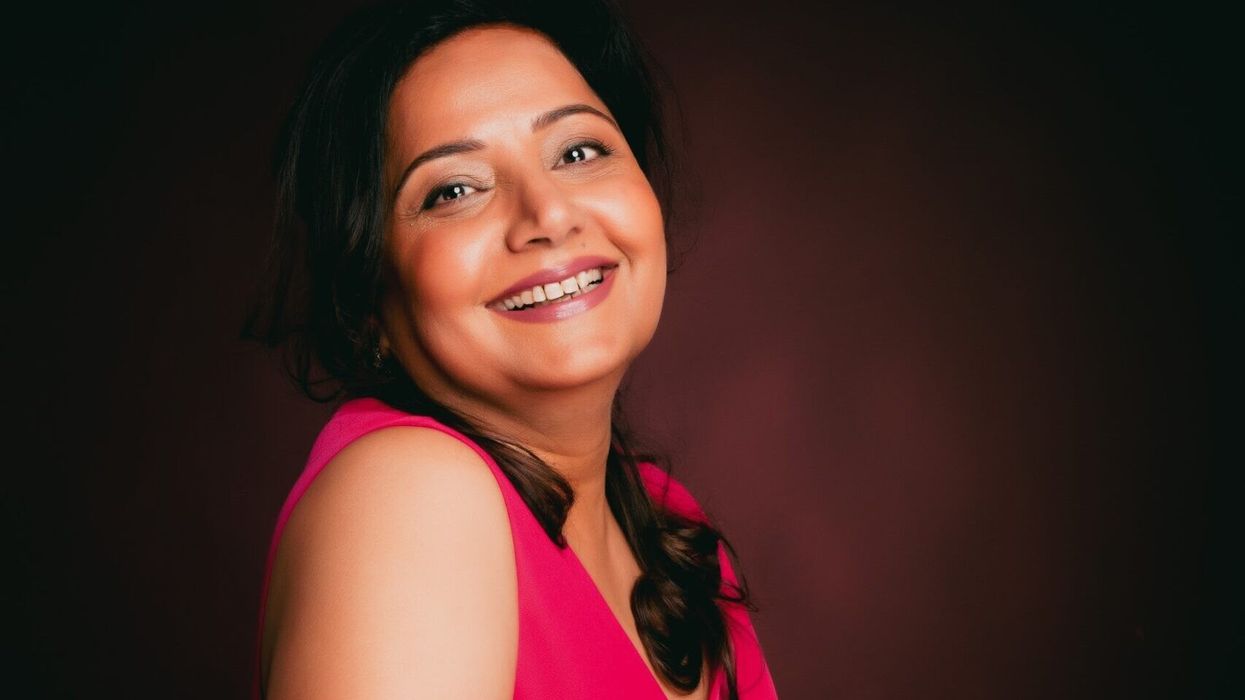POPULAR BBC radio host Sangeeta Dewan is making a huge difference beyond broadcasting.
The devoted mother of two has turned deep personal pain, including the loss of her husband and self-healing, into an inspiring journey of helping others as an award-winning life coach.
She has created the Peaceful Parenting programme to empower those who wish to raise happy, confident and emotionally strong children. By using the key principles of patience and presence, she is making a positive difference.
Eastern Eye caught up with the parenting coach, reiki healer and qualified hypnotherapist to find out more, including how grief helped shape her.
What inspired you to develop Peaceful Parenting?
When my boys were six and four years of age, I struggled to stay present and enjoy being a parent because my traumatic past burdened me. I wanted my boys to feel loved and safe, but I was getting triggered by little things and angry with them. One day, when I saw them scared of me, it took me back to my childhood. That is when I decided something needed to change and went on my journey of self-discovery. After 12 years of healing and studying, I saw how my relationship with my boys transformed. I wanted to share my learnings with other parents about breaking ancestral patterns and raising a joyful, confident and emotionally strong child.
Tell us more about your own experiences as a mother which are informing your approach to the programme?
My healing journey opened me up to learning more about myself and how to change my approach to becoming a better parent. I started focusing on myself more. I realised that we can only give our children what we have. As a mother, if I am stressed and angry, that’s the only thing I will share with my children. So, I started doing things that made me happy and grateful and my energy shifted. Our children don’t want a perfect parent. They want a happy parent.
How does your training help parents break free from the shackles of harmful generational patterns?
The six-week programme takes parents on a journey of self-discovery so they can recognise their triggers and blocks. We carry generational patterns of parenting and trauma. Our beliefs shape our reality, but most are unaware of them as they are buried deep in our subconscious. I take them on a healing process where they can acknoledge and accept dysfunctional behaviour and let them adopt a healthier approach to parenting.
What techniques can parents learn from the programme?
Peaceful Parenting is a life-changing process where they learn about the rules of our mind and how to use mind power to change the outcome. Also, they will understand the power of emotions, what they are trying to tell them and how to navigate them and bring more peace.
How will your methods help foster a stronger and more connected family?
We all want to be around happy and peaceful people. Our children don’t do what we ask them to, but what they see us doing. When we work on ourselves to bring more balance and joy to our family, our energy will inspire and uplift everyone in the family and our children will feel more connected to us.
What has been the greatest challenge of the Peaceful Parenting programme?
A big challenge is convincing parents to take this journey of educating themselves. We can’t change things that we don’t understand. Many tend to believe that parenting comes naturally, but they fail to realise that parenting is not about the child. It’s about themselves. Control and discipline do not mean care; preparing for the future isn’t more important than the present moment.
What advice would you give parents struggling to navigate the challenges of raising children?
I would ask parents to take a more heart-centred approach to parenting. Take time to get to know your child and their struggles. Most importantly, ask for professional help if needed.
We must show our children that asking for help is not weak; it’s the bravest thing. We all need help from time to time. There is no need to struggle alone. It’s okay to be vulnerable.
What are your hopes for the future of Peaceful Parenting?
I intend to inspire and educate parents worldwide through my programme as it raises consciousness, promotes emotional resilience and authenticity and brings peace.
How has your experience with grief shaped your approach to life?
Grief is one of the strongest emotions one can feel - it changed me forever after I lost my husband.
I am more present in every moment of my life and know how precious everyone and everything is. I am now more grateful for what I have in my life - it’s only because of my knowledge that I can go through such a life-changing event and stay balanced.
How do you plan to utilise your new hypnotherapy qualification to enhance your training process?
We can’t change what we don’t understand and hypnosis is a tool that can access the subconscious mind to get all the information that our conscious mind can’t fathom.
So, I can use hypnotherapy to heal past traumas and help parents form new habits that will help them get the desired outcome.
What makes your heart sing when you are at work?
Music is the most powerful way of shifting vibrations, so I play upbeat music to infuse joy.
What message would you like to share with others who are struggling with grief?
Emotions are energy in motion. Grief is a powerful emotion. We tend to suppress pain, but it impacts negatively on our health.
We only struggle with what we don’t accept, so feel the pain and I promise it will pass.




